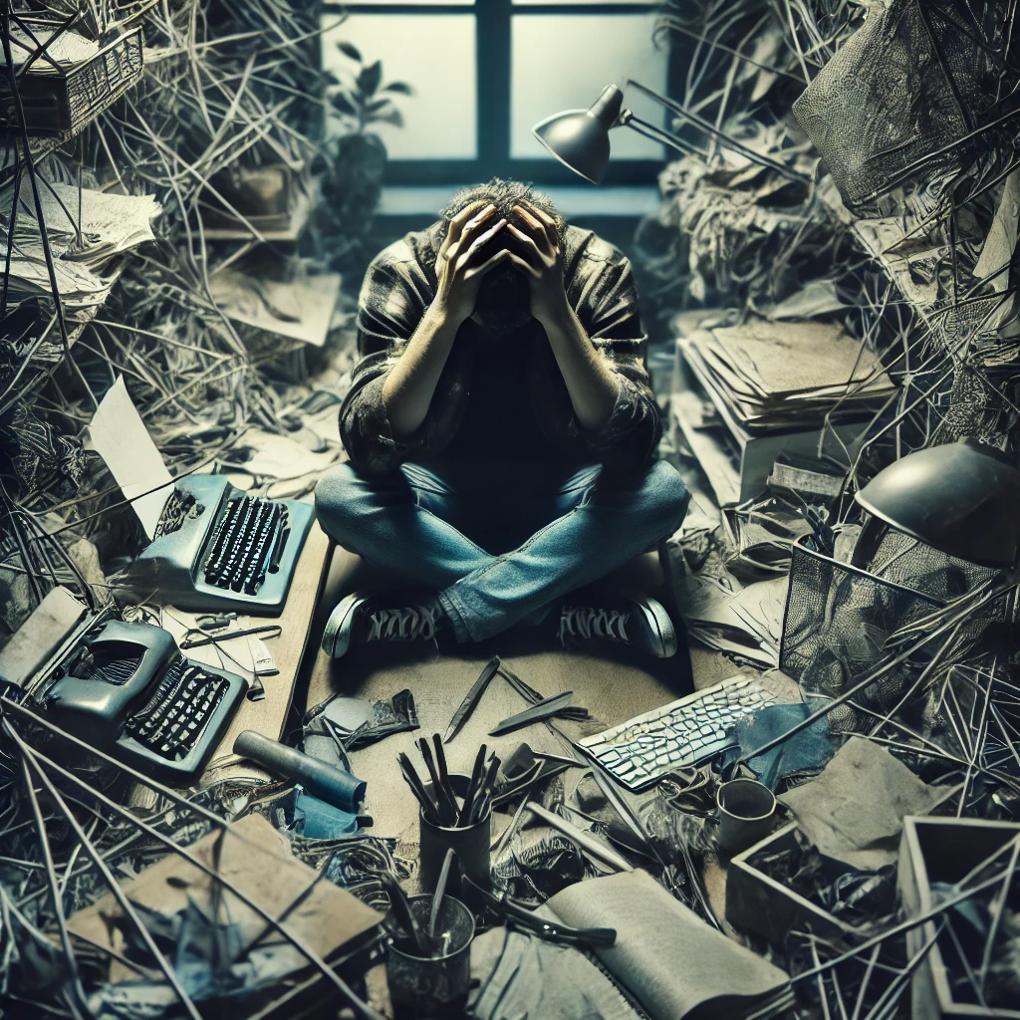The creative industry, with its fast-paced nature, tight deadlines, and constant demand for innovation, can often take a toll on mental health. Creatives are expected to be imaginative, productive, and constantly inspired, leading to high stress levels. As we celebrate World Mental Health Day, it’s crucial to shed light on the challenges creatives face and explore strategies they can adopt to thrive in this environment.
The Unique Pressures of the Creative Industry
Creatives across various fields—design, writing, art, music, advertising, and more—deal with pressures that are distinct to their profession. Some of the common stressors include:
- Deadlines and high expectations: The need to meet tight deadlines and deliver exceptional work can create immense pressure.
- Creative block: The fear of running out of ideas or experiencing a creative block can heighten anxiety.
- Inconsistent income: Freelancers and independent creatives often face financial instability, contributing to stress and uncertainty.
- Subjective feedback: Receiving criticism or feedback, often subjective in nature, can affect self-esteem and confidence.
Given these challenges, it’s important for creatives to prioritize their mental health while still excelling in their work.
How Creatives Can Manage Stress and Thrive
- Prioritize Self-Care Self-care isn’t a luxury; it’s essential for maintaining mental well-being. For creatives, this means:
- Taking regular breaks: Step away from work to recharge. Short, frequent breaks can help you stay creative and avoid burnout.
- Engaging in activities outside of work: Hobbies, exercise, and socializing are all crucial for maintaining a well-rounded life.
- Mindfulness and meditation: Practices like mindfulness or meditation can help reduce stress and keep you grounded during hectic projects.
- Set Boundaries Creatives often work long hours, but without boundaries, it’s easy to experience burnout. To avoid this:
- Create a work-life balance: Set specific work hours and stick to them, even if you’re a freelancer. Separate your workspace from your living space whenever possible.
- Say no when necessary: It’s tempting to take on every project, but knowing your limits and saying no to overwhelming workloads can protect your mental health.
- Embrace the Power of Routine While creativity thrives on freedom, having a routine can reduce stress by providing structure. Building a daily routine that includes time for work, relaxation, and personal growth can enhance productivity while reducing the anxiety that comes with disorganization.
- Seek Support Mental health challenges should not be faced alone. It’s important to:
- Reach out for help: Talk to fellow creatives or professionals about your struggles. Sometimes, simply sharing your experiences can relieve stress.
- Consult a therapist or counselor: Therapy can be a valuable resource for navigating the unique pressures of the creative industry.
- Manage Creative Block Creative block is a common source of anxiety for creatives. Here are ways to manage it:
- Change your environment: Sometimes a new setting can inspire fresh ideas.
- Experiment with new mediums or techniques: Trying out different approaches can reignite your creativity.
- Be patient with yourself: Recognize that creativity ebbs and flows. Giving yourself grace during a block can help alleviate stress.
- Diversify Income Streams The financial instability that comes with freelance work can increase anxiety. Creatives can ease this by:
- Building multiple income streams: Whether it’s through teaching, selling products, or offering different services, diversifying income reduces financial pressure.
- Planning finances: Setting aside savings for slow periods and budgeting can help provide a financial cushion, reducing stress.
- Practice Self-Compassion In the creative world, it’s easy to be hard on yourself, especially when facing rejection or negative feedback. Practicing self-compassion means:
- Acknowledging your efforts: Celebrate small wins and progress, even if the final outcome isn’t perfect.
- Treating yourself kindly: Recognize that creativity can be unpredictable, and it’s okay to have off days. Avoid comparing yourself to others and focus on your unique journey.
The Importance of Mental Health Awareness
World Mental Health Day serves as a reminder that mental well-being is vital for everyone, especially those in high-pressure industries like the creative sector. By adopting strategies that prioritize mental health, creatives can continue to thrive while safeguarding their long-term well-being.
Creativity shouldn’t come at the cost of mental health. With self-care, boundaries, and support systems, creatives can navigate the stressors of their industry and continue to produce exceptional work while maintaining a balanced and fulfilling life.

